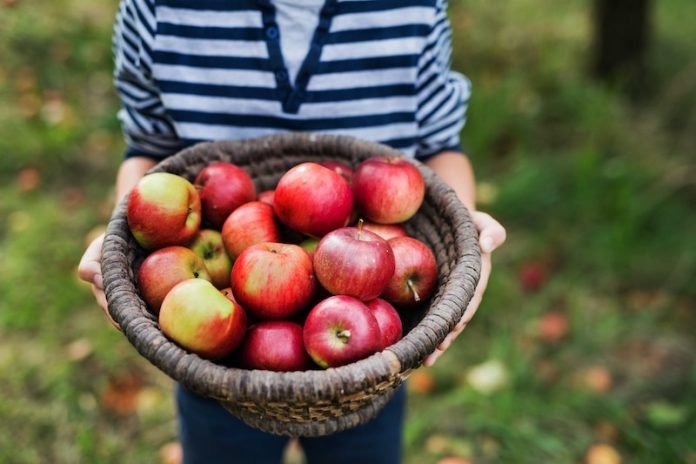
Have you heard the saying, “An apple a day keeps the doctor away?”
Some researchers believe that this little piece of advice might help save our country a lot of money.
The experts at Friedman School of Nutrition Science and Policy say we could save as much as $40 billion on health bills!
A New Idea: The Fruit Prescription
How can we make this happen? The team of researchers thinks a nationwide fruit prescription program could help a lot.
This program would give fruits and vegetables to Americans who have diabetes, either for free or at a discounted price.
The researchers believe this could reduce the number of people with heart diseases and lower the costs of healthcare.
These types of programs have been tried by public health agencies and non-profit groups for nearly ten years. They have seen positive results.
Here is how it works: a patient with a health issue linked to their diet goes to their doctor. The doctor gives them a special card or vouchers.
The patient can exchange these for fruits and vegetables at the supermarket, a farmer’s market, or even a “food pharmacy” at the clinic.
The Power of Fruits and Vegetables
What benefits could people expect from these programs? Consuming more fruits and vegetables can help control blood sugar levels, maintain a healthy weight, and keep blood pressure under control.
However, until now, nobody had studied what might happen if we tried this on a larger scale.
Big Benefits for America
The results are pretty amazing. The researchers say that if we gave fruit prescriptions to people aged 40-79 who have diabetes and struggle to afford healthy food, we could prevent nearly 300,000 cases of heart disease.
This could also increase the number of years people live in good health by 260,000 years. These benefits could save about $39.6 billion in healthcare costs and another $4.8 billion from lost work time.
Setting up this program across the country would cost about $44.3 billion. This would cover the cost of checking patients’ health, teaching them about nutrition, and running the program.
But, even after considering these costs, the researchers think that the program is well worth the money. They estimate that for every $18,000 spent, we gain an extra year of healthy life for someone.
That’s a great deal compared to other health treatments like blood pressure checks, cholesterol tests, and even cancer screening.
Fruits for All
The benefits would be the same for all types of people, no matter their race, ethnicity, or health insurance coverage. This means that a fruit prescription program could help everyone live healthier lives.
Crunching the Numbers
To figure this out, the research team looked at studies from 20 smaller fruit prescription programs. They also used data that represents the whole country to run their computer simulations.
They guessed that if everyone in the program ate just a little more fruit each day (like one small apple), they would become healthier.
Room for Improvement
This idea isn’t perfect. The researchers admit they might be over or underestimating the benefits and costs of the program. But, even if fewer people than expected join the program, it would still be worthwhile.
The Future of the Fruit Prescription
The researchers think this program could be part of health benefits that people already get. Some states and private healthcare providers are testing this idea.
These new findings could help make the program better and bring it to more people across the United States.
The researchers are excited about the possibilities of this “food as medicine” approach. With an apple a day, we could all enjoy a healthier future.
Follow us on Twitter for more articles about this topic.
If you care about health, please read studies about the benefits of low-dose lithium supplements, and what we know about egg intake and heart disease.
For more information about health, please see recent studies about potatoes and high blood pressure, and results showing 6 best breads for people with heart disease.
The study was published in the Journal of the American Heart Association.
Copyright © 2023 Knowridge Science Report. All rights reserved.



